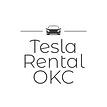charging
There are four options when it comes to charging your Tesla during your trip:
-
Tesla Superchargers
-
Tesla Network Destination Chargers
-
Non-Tesla EV Charging Stations
-
Mobile Connector for charging at any location where you park and there is an electrical outlet.
Tesla Superchargers are a network of 480-volt DC fast-charging stations built by Tesla, providing 120 / 150 kW. Depending on which Tesla model you are driving, current battery level and trip requirements, your supercharging stops will range from a few minutes up to less than an hour. You will not need to pay anything directly at the Supercharger station - you will receive a reimbursement request from your host after the trip, with a detailed receipt of each supercharger session you incurred.
Tip: the car's screen navigation system includes a feature that will automatically locate all Superchargers and Destination Chargers nearby and along your route. Use the GPS tool to navigate to the Supercharger: the battery will precondition for faster charging.
Arrive with 20% battery or less to maximize the charge rate.
Leave space between cars. Neighboring stalls may share power and result in slower charging for both of you.
Move your car after charging is complete. Idle fees may apply if the car is left plugged in after supercharging is finished.
Tesla Network Destination Chargers are a network of level 2 chargers installed at restaurants, hotels, and other retailers and businesses. Participating businesses typically provide Destination charging at no cost to Tesla drivers. Similar to home Wall Connectors, Destination Chargers are best for use when stopping for extended periods of time (hence the name "Destination"), as they provide slower charging performance (11.5 kW, up to 22 kW in some cases). This comes out to approximately 30-40+ miles of range per hour.
Non-Tesla EV Charging stations are a growing network of public stations or other EV Charging companies chargers (such as Francis Energy, ChargePoint, EVConnect and others). Most will require a charging adapter, such as a J1772, a CHAdeMO, or a CSS1 adapter. All our vehicles include a J1772 adapter. If your travel plans may involve charging at an EV charging station that requires a CHAdeMO or CCS1 adapter, please contact us and we will be able to provide you with the required adaptor for an additional small fee of $25 per trip. We highly recommend use of the PlugShare app (www.plugshare.com) for reference in finding EV Charging stations along your route.
Mobile Connectors are a portable cable (included in every Tesla model) that can charge your car at low speeds by plugging it in to any standard 120-volt household outlet (NEMA 5-15) or 240V outlets.
All our vehicles are equipped with a Mobile Charging Kit.
The charging kit includes a Mobile charging cable which is 20' long, and the following charging adapters:
- Standard Wall outlet - this charges at 120V. A good option to charge at home.
- NEMA 14-50 - this is a 4-prong adapter charging at 240 V, commonly known as the "RV" charger
- NEMA 14-30 - this is a 4-prong adapter charging at 240 V, commonly used by electric dryers
- NEMA 10-30 - this is a 3-prong adapter charging at 240 V, commonly used by electric dryers
- J1772 - this is also known as the "J" plug, and charges at 120V or 240V depending on the charging station. It is commonly used by most public charging stations that are not in the Tesla Network.
We also offer separately the CCS Combo charging adapter as an add-on upgrade, for $25 per trip.
